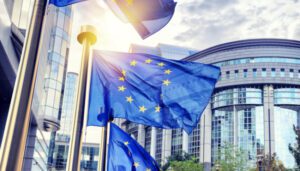
Member of the European Commission (EC) for Energy Kadri Simson said that on Wednesday, September 14, the EC proposal to address a number of problems that have arisen in the EU energy market will be made public.
“Tomorrow we will submit a proposal that aims to eliminate these problems,” the European Commissioner said on Tuesday, speaking at the plenary session of the European Parliament in Strasbourg.
Among the measures, she, in particular, named a reduction in demand for electricity, limiting the income of energy companies that produce electricity at low costs, contributions from companies that receive excess profits for the production of gas, oil and coal.
Referring to Russian gas imports, Simson noted that a “ceiling” on Russian gas would solve the problem of price speculation. However, more work is needed to assess the risk of a possible negative impact of such a measure on some EU Member States. In addition, the European Commission will continue to analyze how a price cap on all gas imports could function and what the consequences would be.
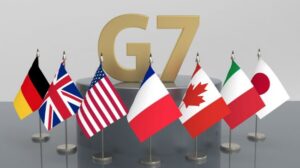
British Prime Minister Boris Johnson calls on the G7 countries, whose leaders start a three-day summit near Munich on Sunday, to continue supporting Ukraine in the fight against Russian armed aggression.
“Now is not the time to give up on Ukraine, they need the support and determination of the G7 more than ever,” he tweeted.
“The UK will continue to stand by Ukraine at every turn because we know their security is our security and their freedom is our freedom,” Johnson said.
The negative global impact of Russia’s war will be at the center of discussions at the G7 summit in Germany, European Commission President Ursula von der Leyen said on Sunday.
“We will stand with Ukraine for as long as it takes,” she tweeted.
Other highlights of the summit, she said, include security of energy supplies and global food security, investment in resilient infrastructure and global pandemic preparedness.
“We will also discuss how we can best deal with price increases without compromising our climate goals,” the Commission President added.
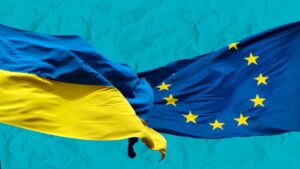
The leaders of the European Union called on the European Commission to promptly present its proposals for EU support for Ukraine in the reconstruction of the country after the war waged against it by Russia.
The conclusions, adopted at the European Council meeting on Thursday in Brussels, noted that the European Commission “soon will submit a proposal to provide Ukraine with a new exceptional macro-financial assistance of up to 9 billion euros in 2022.”
“The European Council calls on the Commission to promptly present its proposals for EU support for the reconstruction of Ukraine, in consultation with international partners, organizations and experts,” the document reads.
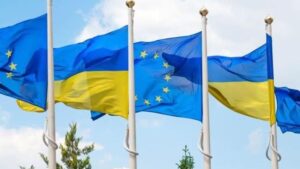
Ukraine’s anti-money laundering legislation partially complies with the standards of the Financial Action Task Force (FATF) and international legislation, but the recommendations of the Council of Europe’s Committee of Experts on the Evaluation of Money Laundering Measures (Moneyval) still remain unfulfilled , says the European Commission.
“Further reforms are needed to improve Ukraine’s compliance with FATF standards, in particular those relating to virtual assets, ultimate beneficial ownership and supervision of non-banking enterprises and transactions,” the European Commission’s Opinion on Ukraine’s application for membership in the European Union states.
It states that for these reasons, Ukraine is still reporting to Moneyval in accordance with the enhanced control procedure.
The European Commission also pointed to the need for more progress in investigating and prosecuting major money laundering schemes.
“Establishing a comprehensive framework for combating financial crime and money laundering and ensuring its effective implementation is critical to addressing the significant risks they pose,” the Opinion notes.
With regard to the established National Agency of Ukraine for the identification, search and management of assets obtained from corruption and other crimes (ARMA), it is indicated that since the end of 2019 it has not had a permanent head.
“Legislation regarding the management of seized assets should be improved and an appropriate national strategy for the return of assets should be adopted,” the European Commission believes.
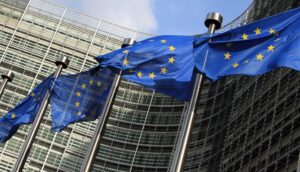
The European Commission recommends that the European Council grant Ukraine the status of a candidate member of the European Union with the subsequent implementation of the necessary steps.
The corresponding announcement on Friday in Brussels was made by the President of the European Commission Ursula von der Leyen.
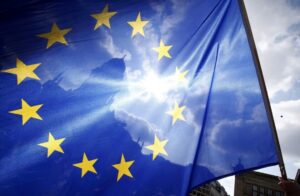
The European Commission will recommend to the European Council that Ukraine and Moldova be granted EU candidate status with further “homework” to be done.
Interfax-Ukraine was informed about this on Thursday in Brussels by a source close to the negotiation process and acquainted with the draft document. “To recommend granting candidate status to Ukraine on the understanding that the next steps will be taken (grant candidate status under the understanding that follows steps are taking),” the agency’s interlocutor quoted the draft document as saying.
Next, he said, is a list of “homework” that Ukraine will have to complete before official negotiations begin. Among them – ensuring the rule of law, the fight against corruption, oligarchs, money laundering. According to the source, this work should be done by Ukraine in any case, since for full membership in the EU it must meet the criteria of Article 49 of the Treaty. “Such a wording will allow countries that are still hesitating to be “taken on board,” the source explained the position of the European Commission. In addition, he also believes that Kyiv will need a significant amount of time to meet the necessary criteria.
With regard to Moldova, the list of “homework” is even longer than for Ukraine. With regard to Georgia, the EC recommends that candidate status be granted only after doing “homework”.
These recommendations have yet to be approved by the EU leaders at the summit, which will be held June 23-24 in Brussels.
The official announcement of the conclusions is scheduled for this Friday, June 17th.
CANDIDATE, EU MEMBERSHIP, EUROPEAN COMMISSION, EUROPEAN COUNCIL, MOLDOVA, STATUS, UKRAINE